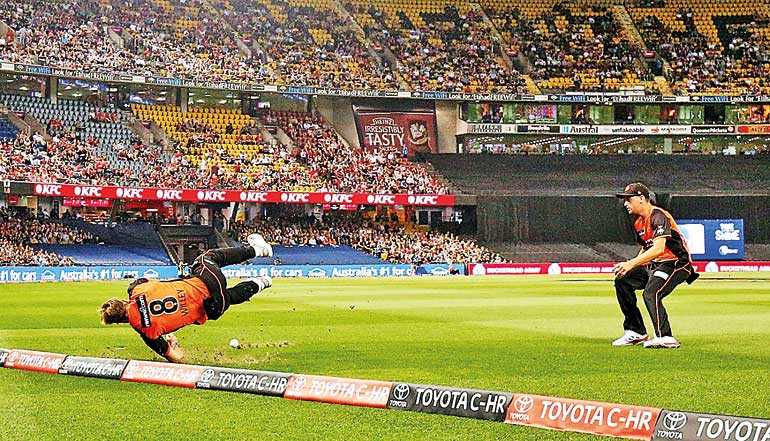Sunday Feb 22, 2026
Sunday Feb 22, 2026
Saturday, 7 July 2018 04:40 - - {{hitsCtrl.values.hits}}

ESPNCricinfo: Any restraint on player movement across lucrative domestic Twenty20 leagues globally will only hamper the growth of the international game, according to Federation of International Cricketers’ Associations (FICA). FICA was responding to discussions earlier this week at the ICC annual conference in Dublin, from where it emerged that Full Member boards raised the prospect of capping players to three domestic T20 leagues in a year.
The movement of top players across leagues - especially those run by Full Members - as well as the burgeoning growth of T20 leagues in Associate Member markets were the two main areas of conversation of a working group at the annual conference.
One of the stated objectives of the working group is that domestic T20 leagues should “complement” and not “compromise” international cricket, even as they should continue to be used as vehicles to popularise the game globally.
The primary objective is to preserve “the value of international cricket and its status as the pinnacle of cricket competition ensuring that the best players are available to play international cricket”.
FICA said the objectives were “narrow” in scope currently, instead arguing that a balance between international cricket and domestic T20 leagues was crucial.
“International cricket needs to be strong and attract the best players. Establishing an appropriate balance between the two is critical for the future,” FICA said in media release on Wednesday.
The global players’ body, which is not recognised in key countries like India and Pakistan, said it was the “fundamental” right of the player to play where he wanted, and imposing a cap would amount to a restraint of trade.
“Cricket’s focus should be less on restricting players from playing where they are valued and more on positive measures to ensure an attractive system including in relation to scheduling, economic models and the creation of world-class environments. The movement of players is a fundamental aspect of growing and developing the game globally in both existing and new markets.
“FICA is further concerned at reports following the ICC meetings that blanket regulation is to be introduced to restrict players to playing in three T20 leagues, and believes that any arbitrary restriction is likely to constitute a restraint of trade in most countries. Any regulations should be designed to minimise the likelihood of successful legal challenge.”
An official familiar with the working group and the Dublin meeting said restrictions would be a last course of action administrators take, pointing out that a number of other options are also under consideration. Any cap could only be restricted to centrally contracted players in the first place - a board could add a clause in its central contract that the player will only receive a specified number of NOCs (No Objection Certificate) in a year.
Other ideas that cropped up include the Full Member board organising the league making a payment for employing an international player - not to that player’s board necessarily, but to the grassroots club or institution that first identified and developed the player.
A significant portion of the discussions among the group, comprised of Full Member board chief executives as well as FICA representatives, focused on better overseeing the conduct of Twenty20 leagues in Associate Member markets.
“A lot of work is around ensuring that if leagues do keep coming up, they are of a certain quality,” the official said. “That due diligence is done on private ownership that anti-corruption measures are in place. If a player is getting an NOC to go, then that league must adhere to certain standards. There is no doubt that strong, viable T20 leagues in different territories is good for the game. But, a lot are of variable quality - that is the concern. If we are going to promote the game, let’s do it well and [ensure] that it’s done in a way that adds to the game.”
One suggestion here was for such leagues to restrict the number of international stars they recruit and prioritise the induction of local players, to show they are serious about the development of the game in their territory.
Earlier this year, FICA released findings of its inaugural Employment Report of 300 male cricketers (outside of India and Pakistan, where there are no player associations). The damning verdict was young players were more keen to adopt the free-agency route by playing in several domestic T20 leagues, thus bringing the traditional employment model under significant threat.
Any formal decision will be taken by the ICC Board once the working group submits a formal report at the October round of meetings.